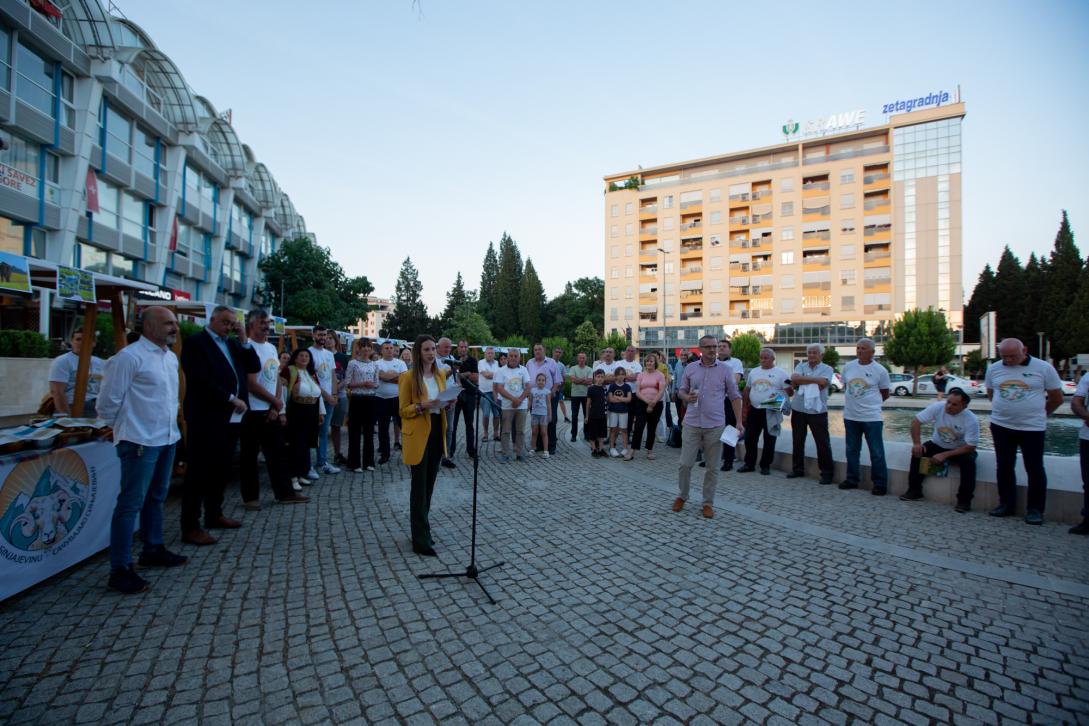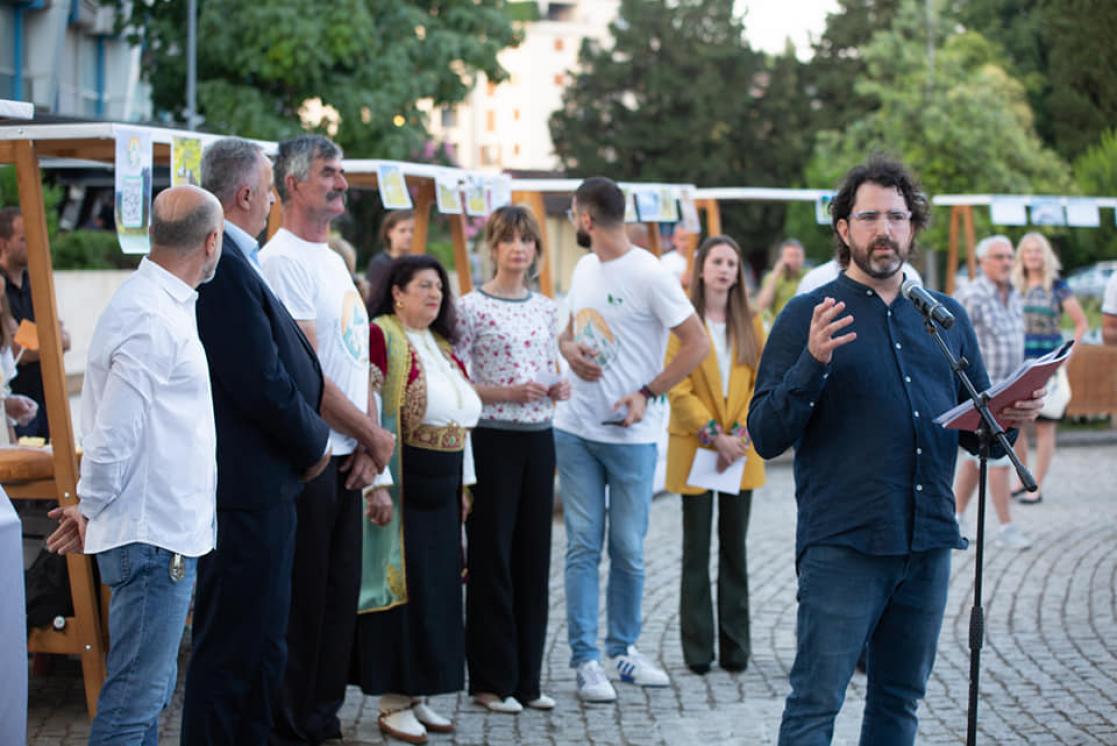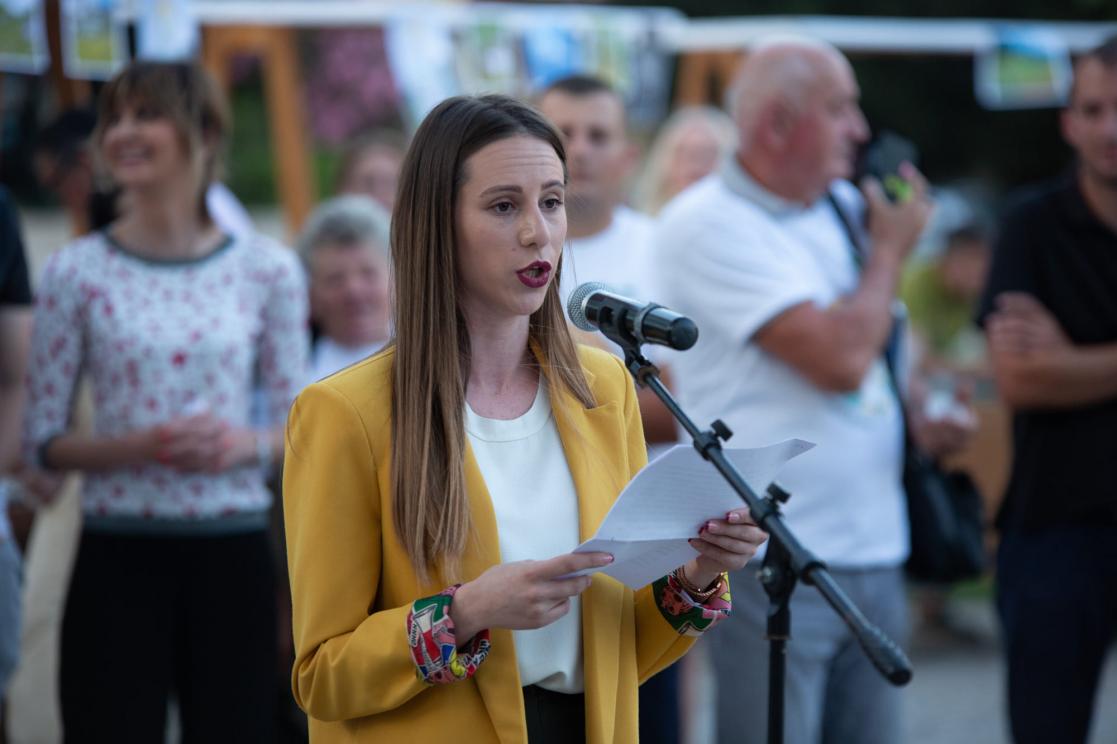Sinjajevina Day in Podgorica

Europe House and the project "IRIS - Inspiring Rural Heritage: Sustainable Practices for the Protection and Preservation of Mountain Landscapes and Memories," along with the support of "Let's Save Sinjajevina" and mountain dwellers, organised Sinjajevina Day at the Podgorica's Argentina Square.

Together with the representatives of local governments that gravitate towards Sinjajevina, this was an opportunity to promote the natural and cultural values and importance of the largest pasture mountain in Montenegro and, along with Durmitor, one of the largest mountain pasture zones in Europe. The IRIS project also aims to bring Sinjajevina closer to the public.

"The goal of this project is to contribute to improving the social and environmental sustainability of the use of mountainous areas such as Sinjajevina. The project should provide national and European policy makers with new tools that will enable them to make decisions in the best interest of these areas," said Pablo Dominguez, coordinator of the IRIS project in Montenegro, during the opening of Sinjajevina Day.
The Director of the Agency for Management of Protected Areas of Podgorica, Drago Djekovic, said that the results of the IRIS project should be given special attention because they can contribute to the sustainable development of similar areas. Sinjajevina must be preserved for the generations to come because they will certainly need it more than it seems to today's generation, added the President of the Municipality of Kolasin, Marta Scepanovic.

"That is why it is up to us to make it a new tourist product with great potential for the development of rural tourism, which will be more attractive and accessible to tourists, and thus get acquainted with the customs and traditions of this area and to live as one with nature," said Scepanovic.
Sinjajevina katuns, a seasonal mountain village still used by several hundred livestock families, is a way of life that is highly sustainable and increasingly valued for its natural and cultural value by significant international actors and institutions, including the European Union, which co-finances the IRIS project.
Ivana Medojevic from the office of the President of the Municipality of Mojkovac also reminded of the wealth of Sinjajevina, adding that 1,300 different plant species live on Sinjajevina, as well as 43 species of mammals, of which as many as 15 are protected by law.

"From our point of view, it is necessary to move in the direction of protecting, valorising, and promoting the mountain. Sinjajevina must remain intact and we must preserve it for future generations," Medojevic said.
The large area and potential of the area of Sinjajevina is completely untapped, which is why the municipalities that gravitate to this mountain and the state itself must pay special attention in the coming period, emphasised the President of the Municipality of Zabljak, Veselin Vukicevic.

Today, modern civilisation is struggling to reach and produce healthy food that it has largely lost in the meantime. We were lucky that we never lost that treasure, and it is our task and our immense responsibility to preserve it, said Milan Sekulović from the organisation "Let's save Sinjajevina."

“Every piece of grass and flower on Sinjajevina testify to the beauty and richness of biodiversity, or as we simply like to call it, nature. But an inseparable part of that nature and biodiversity is still man," said Sekulovic.

As part of Sinjajevina Day, the exhibition “Territories of Life on the Margins. Mediterranean Pasture Commons in the 21st Century” was presented, which, along with examples from Spain, Morocco, and Turkey, also represents Montenegro’s pastoralism through Sinjajevina, and which was inaugurated at the World Congress of the International Union for Conservation of Nature (IUCN) in Marseille in September 2021 and continues to be represented in various other Mediterranean countries (Spain, France, Morocco, and now Montenegro).
Sinjajevina is one of the five pilot areas in Europe, along with Spain, France, Italy, and Great Britain, where the IRIS project is being implemented. The aim of this project is to contribute to the improvement of the socially and ecologically sustainable use of mountain areas through transdisciplinary and intersectoral research, including the different stakeholders of the territory. The project explores and develops a “living heritage” approach to the protection and promotion (i.e. protection through use) of mountains and neighbouring rural areas. In Montenegro, the implementation of the IRIS project (2021-2024) is coordinated by the Laboratory for Environmental Geography (GEODE) from the French National Centre for Scientific Research (CNRS) and the University of Toulouse-Jean Jaurès, in cooperation with a key interdisciplinary team of excellent researchers and professors from the University of Montenegro at the Institute of History, Biotechnical Faculty, and the Faculty of Law.





